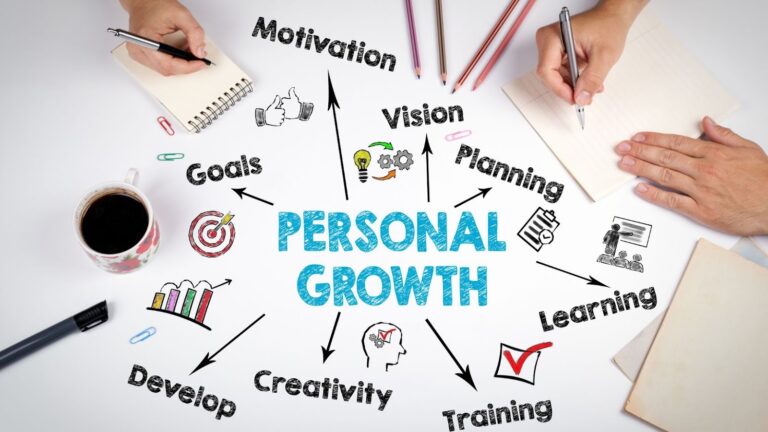
Mind Under Master: Unlock Your True Potential with Mental Mastery Techniques
In a world where distractions are as common as coffee breaks, mastering one’s mind can feel like trying to herd cats. But what if the key to unlocking your potential lies in the age-old concept of “mind under master”? This intriguing principle suggests that with the right mindset, anyone can take charge of their thoughts and actions, transforming chaos into clarity.
Imagine having a personal mind coach who never takes a day off—sounds fantastic, right? By embracing this idea, individuals can learn to navigate life’s challenges with ease, all while maintaining a sense of humor. After all, who wouldn’t want to turn their inner critic into a supportive cheerleader? Dive into the world of mental mastery and discover how to harness the power of your mind, one laugh at a time.
mind under master
Mastering the mind plays a crucial role in personal development. This concept revolves around cultivating awareness of thoughts, emotions, and behaviors. Through consistent practice, individuals gain the ability to control their mental processes.
Achieving clarity in thought emerges as a primary benefit of this mastery. By organizing thoughts, one can tackle challenges more efficiently. Enhanced focus allows for better decision-making, leading to improved outcomes in both personal and professional life.
Utilizing the inner coach concept acts as a powerful tool. Transforming the inner critic into a supportive voice fosters resilience. This shift in perspective empowers individuals while encouraging self-compassion.
Engaging with one’s own thoughts can also spark creativity. By harnessing imaginative thinking, personal potential expands. Creative solutions often arise when the mind is allowed to flow freely without judgment.
Practicing mindfulness techniques supports the journey toward mental mastery. These techniques, such as meditation and deep breathing, provide tools for relaxation and awareness. Regular practice leads to significant improvements in emotional regulation.
The importance of humor should not be overlooked during this process. Embracing lightheartedness can ease moments of tension. A smile or a laugh serves to break patterns of negative thinking.
Overall, mastering the mind equips individuals with skills essential for overcoming life’s obstacles. By implementing these strategies, people can enhance their quality of life and unlock their true potential.
Historical Context

The concept of “mind under master” has deep roots in philosophy and psychology. Prioritizing self-mastery, it emphasizes control over thoughts and emotions as essential for personal growth.
Philosophical Foundations
Plato’s dialogues introduced the idea of self-regulation, where mastery of one’s mind leads to a virtuous life. Aristotle expanded this concept, linking rational thought with ethical behavior. Eastern philosophies, especially Buddhism, introduced mindfulness practices, advocating awareness and detachment from chaotic thoughts. Existentialists like Sartre argued that individuals must confront their freedom and exercise agency over their decisions. These philosophical insights laid the groundwork for contemporary understanding of mental mastery.
Key Figures in the Development
Numerous key figures contributed to the evolution of the “mind under master” concept. René Descartes emphasized clear reasoning as vital for understanding reality. William James, a pioneer in psychology, explored the connection between thought processes and emotional states. Carl Jung introduced ideas of the unconscious and the importance of integrating archetypes. Viktor Frankl, through his experiences in concentration camps, highlighted the significance of meaning in life and its impact on mental resilience. These thinkers collectively shaped the principles surrounding mental mastery and personal development.
The Concept Explained
The concept of “mind under master” encapsulates the idea of harnessing one’s thoughts and emotions for personal growth. Mastery of the mind enables individuals to cultivate awareness, ultimately shaping their responses to life’s challenges.
Definition and Interpretation
“Mind under master” refers to the ability to control one’s mental landscape and decisions. Mastery signifies self-regulation, where individuals consciously guide their thoughts and behaviors rather than react automatically. This principle encourages recognizing and understanding one’s emotions, leading to improved clarity and decision-making. Clarity transforms chaos into actionable insights, allowing for thoughtful responses. Through this lens, it becomes easier to see the benefits of self-awareness in personal and professional settings.
Applications in Daily Life
Implementing the “mind under master” concept in daily life enhances personal and professional effectiveness. Techniques such as mindfulness encourage individuals to pause and evaluate their thoughts. Regular practice instills resilience and adaptability. People can leverage this mastery during stressful situations, reframing challenges as opportunities for growth. Engaging the inner coach fosters a supportive mindset, crucial for facing obstacles and achieving goals. Incorporating humor in everyday interactions provides relief, reducing tension and promoting a positive outlook. By applying these strategies, individuals unlock their potential and navigate life’s complexities more skillfully.
Benefits of Mind Under Master
Mastering the mind brings numerous benefits, significantly impacting an individual’s quality of life. Two key benefits stand out: mental clarity and emotional resilience.
Mental Clarity and Focus
Mental clarity stems from the ability to control thought processes. Achieving this clarity enhances focus, leading to improved decision-making. When individuals engage their inner coach, distractions diminish. Tools like mindfulness practices further aid in sharpening concentration. By regularly practicing mindfulness, people cultivate awareness and identify thoughts that hinder focus. With increased mental clarity, navigating complex situations becomes more manageable, allowing for innovative problem-solving.
Emotional Resilience
Emotional resilience develops through mastering one’s thoughts and reactions. When individuals learn to observe emotions without judgment, they build a buffer against stress. Adopting techniques like deep breathing offers immediate relief during tense situations. By cultivating self-compassion, individuals become better equipped to bounce back from setbacks. A resilient mindset transforms challenges into opportunities for growth. Practicing humor also plays a critical role, lightening the emotional load during difficult times. Ultimately, a strong emotional foundation fosters adaptability and strengthens overall well-being.
Critiques and Controversies
Critiques of the “mind under master” concept often center on its practicality and potential drawbacks. Some argue that the focus on individual thought control can lead to an oversimplification of complex emotional experiences. Critics suggest that personal mastery may unintentionally place undue pressure on individuals to suppress genuine feelings.
Opposing Perspectives
Opposing perspectives highlight a belief in inherent limitations of self-regulation. Skeptics point to external factors influencing mental states, such as trauma and environmental stressors. They emphasize that not everyone possesses equal access to resources for mastering their minds. Additionally, critics assert that while mindfulness practices promote self-awareness, they might not address underlying issues effectively.
Misunderstandings and Misapplication
Misunderstandings surrounding “mind under master” often stem from its interpretation as strictly positive. The concept can be misapplied when individuals seek to exert control over every thought and emotion. This approach may lead to frustration instead of fostering growth. Moreover, some individuals use these techniques superficially without developing a deeper understanding of their emotional landscape. Encouragement toward superficial improvements can overshadow the importance of genuine feelings and vulnerability in personal growth.
Conclusion
Mastering the mind is a journey that empowers individuals to navigate life with clarity and purpose. By transforming the inner critic into a supportive ally and embracing mindfulness techniques, they can cultivate resilience and creativity. Humor plays a vital role in this process, lightening emotional burdens and fostering a positive mindset.
While challenges may arise, the ability to engage thoughtfully with one’s emotions and thoughts leads to personal growth and fulfillment. Ultimately, embracing the “mind under master” concept equips individuals with the tools necessary to overcome obstacles and unlock their true potential, paving the way for a more enriching life experience.







